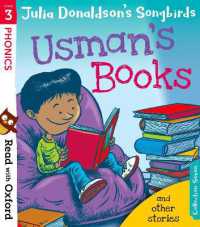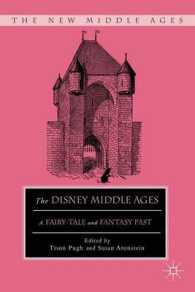- ホーム
- > 洋書
- > 英文書
- > Literary Criticism
Full Description
Although numerous essays on Aboriginal archaeology and historical accounts have explored the characteristics of Indigenous communities at the onset of colonization, academic criticism has largely overlooked their representation in Cuban literature and art. This book addresses that critical gap, emphasizing the significance of Indigenous figures in the Cuban social imagination from the late eighteenth to the late nineteenth centuries. It examines a range of cultural texts—including poems, caricatures, plays, and essays—that depict Indigenous characters within both proto-nationalist and pro-Spanish discourses. In the former, the Indigenous figure serves to critique colonial authority and assert a rightful claim to the land; in the latter, it is used to ridicule Cuban separatists. The book's theoretical framework draws on the works of Bronislaw Baczko, Benedict Anderson, and others to explore the formation of Creole social subjectivity and to illuminate the ideological conflicts embedded within the colonial order.
Aunque numerosos ensayos sobre arqueología aborigen y relatos históricos han explorado las características de las comunidades indígenas al inicio de la colonización, la crítica académica ha pasado por alto en gran medida su representación en la literatura y el arte cubanos. Este libro viene a llenar esa laguna crítica, enfatizando la importancia de las figuras indígenas en el imaginario social de la isla desde finales del siglo XVIII hasta finales del siglo XIX. Examina una gama de textos culturales—incluyendo poemas, caricaturas, obras de teatro y ensayos—que representan personajes aborígenes dentro de discursos tanto protonacionalistas como pro-españoles. En los primeros, la figura del indígena sirve para criticar la autoridad colonial y afirmar un derecho legítimo a la tierra; en los segundos, se utiliza para ridiculizar a los separatistas cubanos. El marco teórico del libro se basa en las obras de Bronisław Baczko, Benedict Anderson y otros autores, con el cual este libro explora la formación de la subjetividad social criolla e ilumina los conflictos ideológicos que se desarrollaron dentro del orden colonial.







